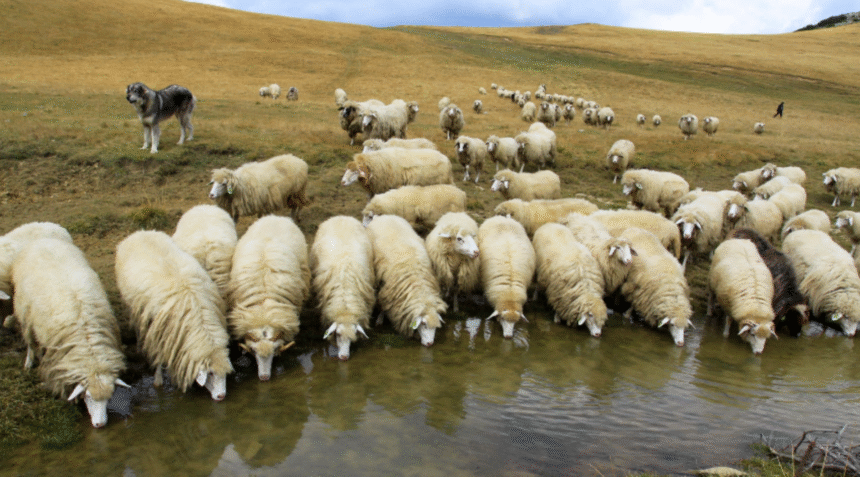The Food and Veterinary Agency (FVA) of Kosovo has announced a temporary ban on the import of live sheep and goats from North Macedonia, following the confirmed presence of the “Bluetongue” disease.
In its official statement, the FVA said the measure was taken to prevent the spread of this disease into Kosovo.
“The Food and Veterinary Agency, as of today, has implemented an indefinite ban on the import of small ruminants — sheep and goats. At the same time, all farmers who graze livestock in the border areas with North Macedonia are urged to closely monitor their herds and avoid any contact with animals from across the border. All authorities are requested to support the enforcement of strict movement restriction measures for small livestock in pasturelands along the border. Sheep and goat farmers are asked to comply with orders to protect the health of their herds,” the announcement states.
Bluetongue disease is a non-contagious viral illness in animals, transmitted through the bites of insects of the Culicoides species. It affects domestic ruminants (cattle, sheep, and goats), with sheep being the most sensitive, followed by goats and then cattle. Clinical symptoms and deaths typically occur only in sheep, while cattle serve as a reservoir for the virus.
“The disease is not transmitted from animals to humans, nor from animal to animal. The Food and Veterinary Agency is mobilized to strictly monitor the imposed measures and prevent the spread of the disease in our country. As two different animal diseases are currently present in neighboring countries — both affecting sheep and goats — we urge farmers to activate biosecurity measures on their farms. Additionally, any change in the health status of herd animals should be immediately reported to a veterinarian,” the FVA clarified.







